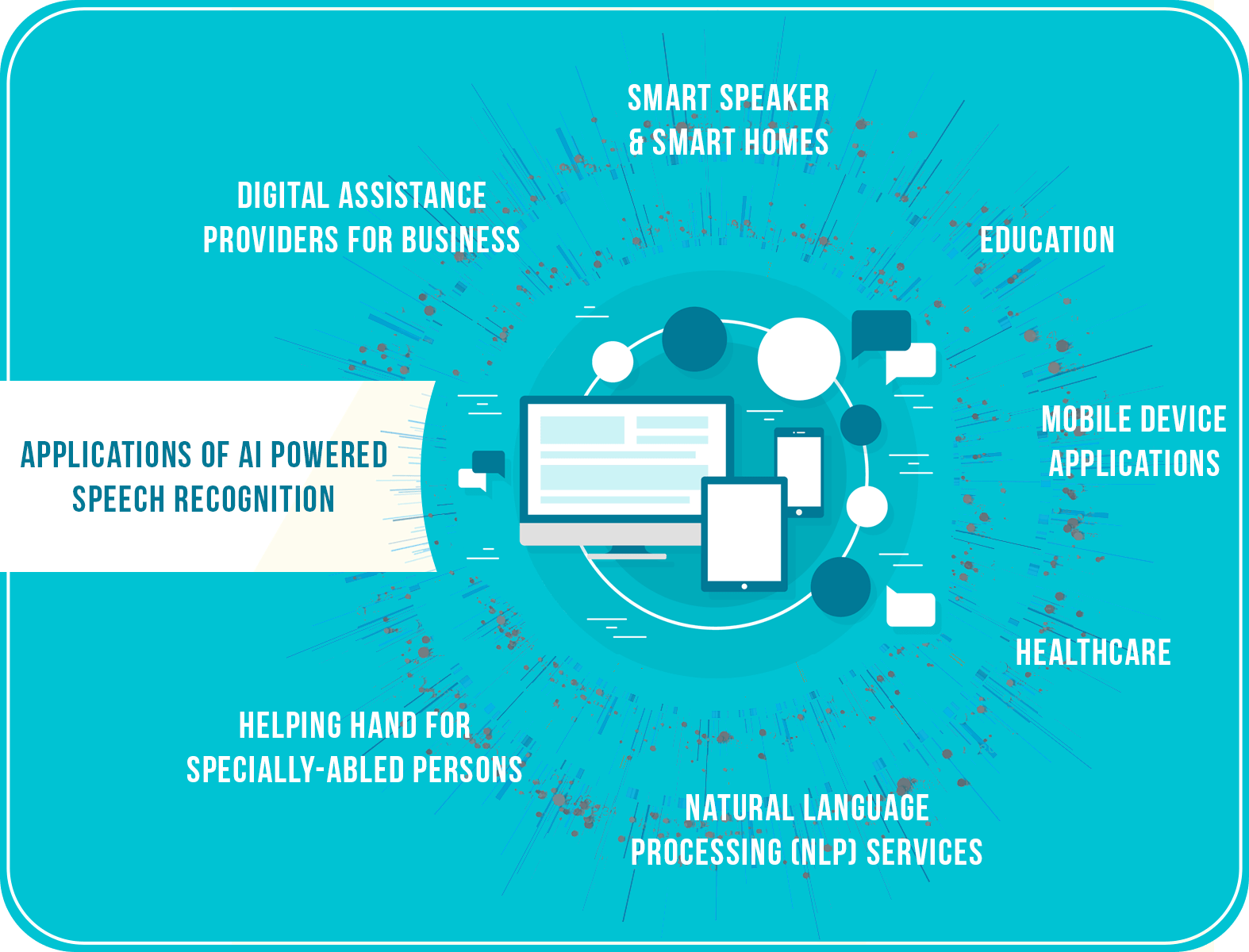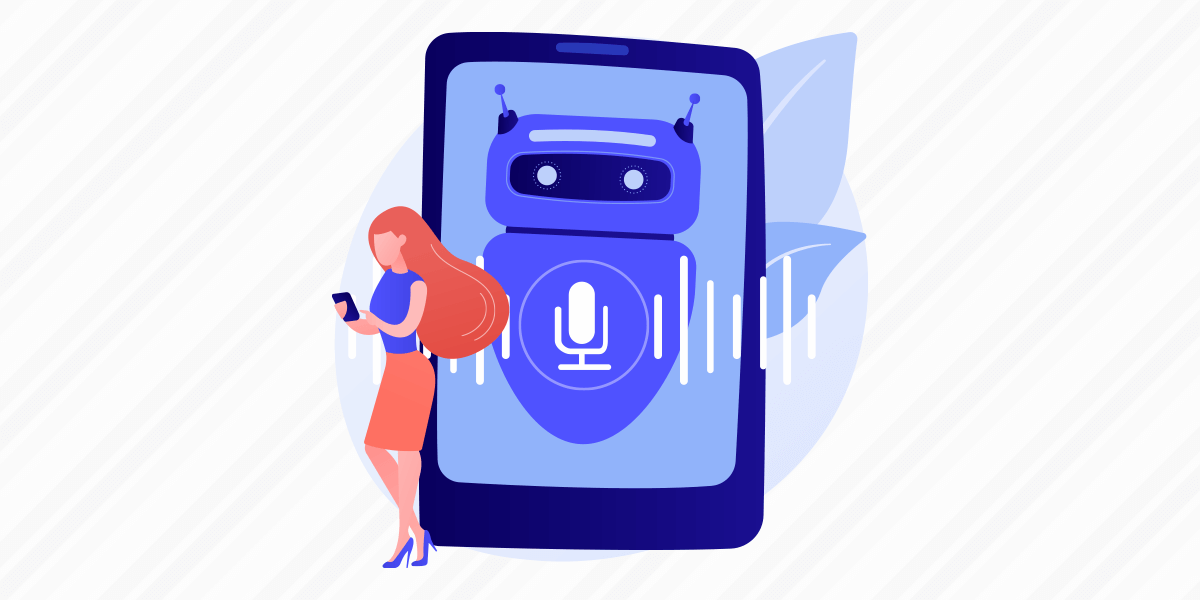There’s no doubt that artificial intelligence is taking strides in a broad range of applications. This cutting-edge technology has become an integral part of our lives, making many routine activities easier to perform. One of these benefits which we are availing is speech recognition and voice-enabled services that have seen exponential growth in the adoption rate. An analysis made by Google demonstrates that 20% of all search queries are voice and this trend would have steep projections in the future.
But the question arises, how the whole process of user interaction with machines works? Speech recognition is a sophisticated technology that enables the identification and translation of spoken language into text or other desirable formats by the computer. The speech recognition system uses AI and machine learning algorithms to analyze the spoken language and transcribe those words into text. Voice recognition is the advanced form of speech recognition that can identify persons based on their voices. Artificial intelligence-based models offer more accuracy to these systems and can adapt to changes in language.
We use speech recognition technology widely in digital assistants in the workplace, smart homes, smart speakers, dictation purposes, and this applied science makes many more invaluable contributions. In this article, we have clustered all the use cases of AI-driven speech recognition technology which we all take benefit of in our day-to-day life. The list of AI applications and projects is presented below:

1- Smart speaker and smart homes
A smart speaker is a voice-operated device that interacts with users in an intelligent manner to offer assistance in many activities. People use smart speakers in a variety of ways, such as to do internet searches, set timers or reminders, and more. Smart speakers can be used to control other home functions when combined with other devices and software, such as locking doors or turning lights on and off. Few smart speakers which use artificial intelligence are listed below:
- Amazon Echo and Alexa: These are AI-based devices, developed by Amazon, to assist people to control all features of their home, such as TVs, air conditioning units, faucets, and others.
- Google Home and Assistant: This smart speaker is created by Google that provides help to manage everyday life.
2- Digital Assistance Providers for Business
AI-based speech recognition helps in boosting productivity and enables multitasking. For instance, Alexa for business can help users by giving voice commands to start video conferences, print documents, and manage many workplace activities. Microsoft’s Cortana is another voice-activated virtual assistant that helps in finding information, schedule meetings, transcribes meeting notes, and recommends documents.
AI-driven bots are also providing help with advertising. Facebook is taking advantage of speech recognition technology to automatically caption video ads.
3- Natural Language Processing (NLP) services
Speech recognition abilities are a very significant aspect of NLP models. It helps in serving the ultimate objective of natural language processing to read, decode, comprehend, and derive meaning and value from large amounts of human language data. One of the most popular examples of this is voice search in Google that uses the combined power of speech recognition and NLP to surface relevant results.
4- Helping hand for specially-abled persons
Many applications have been devised that are utilizing AI-driven language recognition technology to assist people with some types of disability. Voice-activated domestic appliance (VADAS) is one such application that can make living easier for people with special abilities. Automatic speech recognition (ASR) could facilitate a promising future for specially-abled individuals.
5- Education
Voice-enabled applications and devices are increasingly leveraged in the classrooms as well as into the offices of educators. Researchers have developed speech recognition software that can convert spoken lectures into electronic format making it easy for students to take notes for later studies. It also helps lecturers to monitor and improve their teaching material.
6- Mobile device applications
Apple’s Siri is the most popular virtual assistant that can connect the users with a range of web services and offer voice-powered abilities, such as getting details of local restaurants, booking cabs, looking for movie reviews, or even transferring money between bank accounts. Artificial intelligence and machine learning allow Siri to activate or control any smart home gadgets also.
7- Healthcare
Speech recognition is being used extensively by doctors for transcribing their clinical notes. Hospitals are also applying AI-powered voice-enabled services for providing better services to patients and in administration, activities to save time and efforts. Voice-operated electronic medical records help in better productivity and fewer medical errors. Dolbey uses a transcription application to generate electronic medical records for patients.
Concluding Thoughts
With the support of artificial intelligence, the accuracy of speech recognition systems has enhanced manifolds. Speech recognition driven by AI models has the potential to revolutionize all industries and people’s lives. People can perform all the essential functions without pushing any button. Many organizations are integrating this scientific advancement in their operations to improve customer service and provide better value. AI technology that backs voice-enabled interfaces is very powerful. There are more intriguing and surprising applications of AI-powered speech recognition technology to uncover in the future that would change everything.

